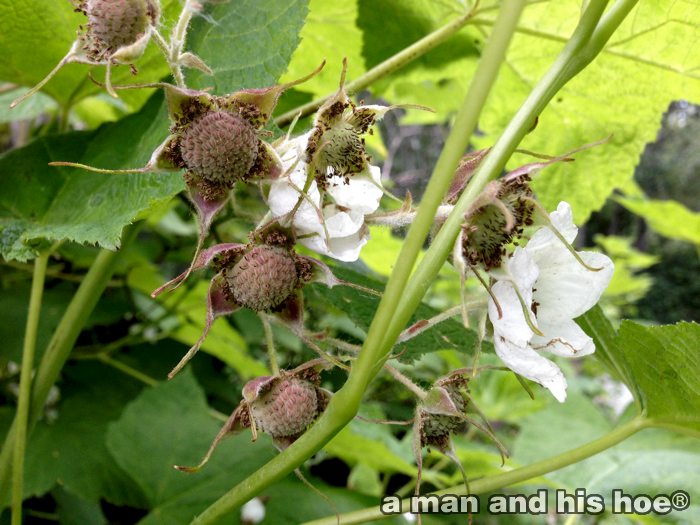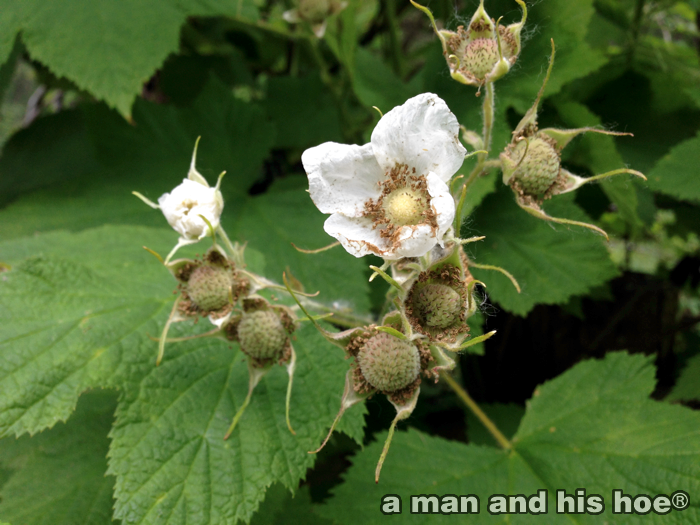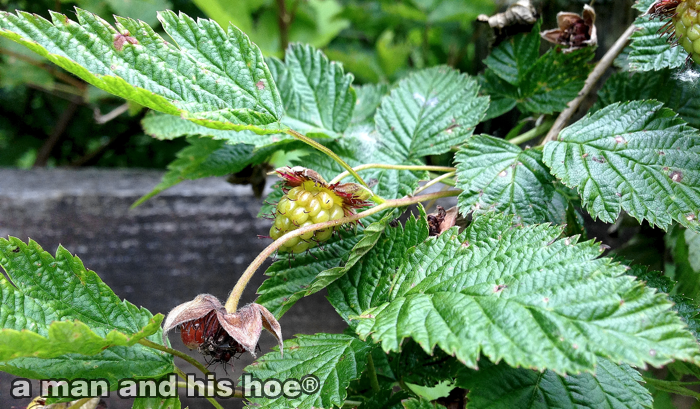This is how nature’s grocery store works. There’s no marketing, no glitzy displays to lure you in. It’s all up to chance. The thimbleberries (rubus_parviflorus) and salmonberries (rubus_spectabilis) get closer to perfection each day.



According to Practical Plants, leaves of the thimbleberry are used to line baskets for carrying soft fruit or other delicate items, and a soap can be made by boiling the bark.
The leaves are antiemetic, astringent, blood tonic and stomachic. An infusion is used internally in the treatment of stomach complaints, diarrhoea and dysentery, anaemia, the spitting up of blood and to treat vomiting. An infusion has been taken by women when their periods are unusually long. A poultice of the dried powdered leaves has been used to treat wounds and burns. The leaves have been crushed and rubbed over the skin to treat pimples and blackheads. A poultice of the leaf ashes, mixed with oil, has been used to treat swellings. The young shoots are alterative and antiscorbutic. The roots are appetizer, astringent, stomachic and tonic. An infusion has been used by thin people to help them gain weight. An infusion has also been used in the treatment of stomach disorders, diarrhoea and dysentery. A decoction of the roots has been taken in the treatment of pimples and blackheads.
Natural Medicinal Herbs, states that the shoots of thimbleberries can be picked while they are still young and tender, and cooked like asparagus, and are rich in vitamin C.
Hansen’s Northwest Native Plant Database lists quail, grouse, partridge, thrushes, thrashers, towhees, cardinals, grosbeaks, bears, coyotes, raccoons, squirrels, foxes, opossums and skunks as all lovers of thimbleberries.
And yet the fruit is too delicate to package and sell in supermarkets. Which means that there are just a few lucky folk who get to eat these delicious berries. If you have space and live in an area where thimbleberries grow, plant a few and enjoy a fresh treat in midsummer. They are simply divine on ice cream or with a bit of heavy cream.